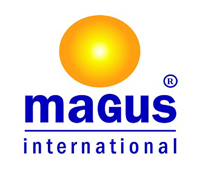10 Factors That Make Gas Detection Crucial
The petrochemicals sector, which is closely related to the oil and gas industry, transforms raw materials from gas detection gas processing, and refining into useful products using chemical process technology. Advanced Gas Detection & Instrumentation plays a critical role in ensuring safety and efficiency throughout these processes. Methanol, ethylene, propylene, butadiene, benzene, toluene, and xylenes (BTX) are the organic compounds generated in the greatest quantities in this industry. Numerous consumer items, such as plastics, textiles, building supplies, artificial detergents, and agrichemicals, are made of these compounds.
Gas detection
One important sector that contributes significantly to supplying the world’s energy demands is the onshore oil and gas industry. There are several safety hazards for both the environment and employees associated with the extraction, production, and transportation of gas and oil.
Exposure to harmful gasses like benzene and hydrogen sulfide (H2S) is one of the biggest risks in this sector. High amounts of these gasses can be fatal or cause serious health issues. The installation of efficient gas detection systems in the workplace is essential to averting such catastrophes. Magus International will help you to do that perfectly.
Gas Detection Systems’ Significance
When hazardous or unhealthy gases are present within or outside a structure, gas detection devices can detect them. These gases may be harmful to people or combustible, which might cause a fatal fire in an accident. Ventilation systems may be turned on or shut down using an interfaced gas detection system with a control system.
Gas detectors notify building occupants if an evacuation or other action is required. These solutions also help you keep your business productive so it is important to get now from a trusted place like Magus International.
-
Recognizing Combustible Gas
Preventing hazardous fires requires a gas detection system that can identify flammable gas. Any gas with characteristics that cause it to burn or ignite is considered flammable. The presence of combustible gas may be detected with an infrared sensor gas detector. Equipment may be turned off and the air may need to be evacuated if the sensor detects a high concentration of combustible gas.
-
Recognizing Dangerous Gas
Any gas that might be hazardous for humans to breathe in or come into contact with is considered harmful. A harmful gas detector detects the presence of a hazardous gas using metal oxide semiconductors or electrochemical sensors.
Carbon monoxide, hydrogen sulfide, oxygen shortage, and other substances can all cause a dangerous gas detector to activate. To protect the people, the building might need to be evacuated if the sensor detects a high concentration of dangerous gas.
Gas Detection System Applications
In many applications, gas detection systems are necessary. Gas detectors are necessary in the majority of manufacturing and industrial facilities to shield workers from potentially dangerous gasses.
The following are some locations where gas detection would be necessary:
- Automobile factories.
- Plants that produce chemicals.
- Nuclear power plants.
- Gas and Oil Applications.
- Generation of power.
- Welding shops.
Ten Factors That Make Gas Detection Crucial
Why we need Magus International to make gas detection:
-
Toxic Gas Monitoring:
Toxic gases such as carbon monoxide (CO), sulfur dioxide (SO2), nitrogen dioxide (NO2), and hydrogen sulfide (H2S) are frequently detected in indoor and outdoor air using gas detection instruments.
Constant observation of these gases guarantees adherence to safety regulations and contributes to human health protection.
-
Monitoring of Industrial Emissions:
Gas detection systems are used in industrial environments to keep an eye on the release of pollutants into the atmosphere. By doing this, businesses can keep up with environmental regulations and stop dangerous gasses from leaking into the atmosphere.
-
Oil and gas sector:
To keep an eye out for leaks or discharges of dangerous or combustible gases, the oil and gas sector relies heavily on gas detection systems to keep an eye on storage tanks, refineries, and pipelines. This preserves adherence to industry rules, prevents mishaps, and safeguards the environment.
-
Workplace Safety:
In businesses where personnel may be exposed to hazardous chemicals, gas detectors are crucial for their protection. These gadgets alert users to gas leaks in advance, allowing for a timely evacuation and averting mishaps or inhalation-related illnesses.
-
Hazardous Material Handling:
Gas detectors are essential in establishments that handle or store hazardous chemicals.
They assist in keeping an eye out for any flammable or poisonous gasses that could be generated while handling, storing, or transporting these products.
-
Restricted Areas:
When there is a chance of gas accumulation in restricted areas like tunnels, storage containers, or tanks, personnel are protected by gas-detecting equipment. These instruments are crucial for identifying gasses that might replace oxygen or be harmful if ingested.
-
Environmental Monitoring:
To measure and track the concentrations of air contaminants, gas detectors are employed in environmental monitoring. This information is essential for evaluating the quality of the air, locating the sources of pollution, and creating plans to lessen the effects on the ecosystem.
-
Emergency Response and Firefighting:
Firefighters and other emergency responders use gas detectors to find dangerous gasses during a fire or other disaster. They are better equipped to respond appropriately and protect the public and their safety thanks to this knowledge.
-
Safety in the Lab:
To keep an eye out for potentially dangerous gases that could be created during experiments or kept in gas cylinders, labs use gas detection systems. This promotes adherence to safety procedures, protects researchers, and avoids mishaps.
-
Mining Activities:
In underground mines, gas detectors are often employed to track the concentrations of gases like carbon monoxide and methane. For miners’ safety and to avoid explosions, early identification of such gasses is essential.
Gas Detection Systems from Magus International
One of the top distributors of electronic security systems, Magus International focuses on safety and security solution solutions. Magus International can recommend the best product for your needs and has provided gas detection systems for a range of applications. Visit see your alternatives for gas detection go visit Magus International.
Conclusion about gas detection
To sum up, Magus International offers a measurable improvement in gas detection for the onshore oil and gas sector. With several alternatives available, facilities may pick the appropriate solution for their needs, whether it be the adaptable 903-X5, the personal safety features of the SGT-P, SENKO MGT, and PID NEO, or a combination of these products. With a century of experience and understanding in the field, Magus International is dedicated to giving onshore oil and gas workers a safe and secure workplace.





There are no comments